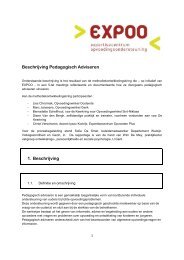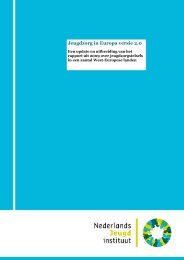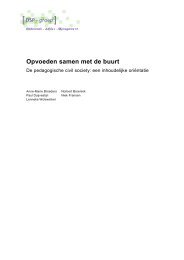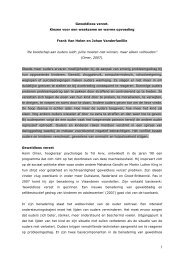Technique Is Not Enough (TINE) - British Psychological Society
Technique Is Not Enough (TINE) - British Psychological Society
Technique Is Not Enough (TINE) - British Psychological Society
- No tags were found...
Create successful ePaper yourself
Turn your PDF publications into a flip-book with our unique Google optimized e-Paper software.
A range of these programmes are recommended across the continuum of children’sservices. Some should be targeted and others should be universal. With low-incomefamilies, targeted parenting programmes report higher retention rates if they are offeredfollowing the provision of a universal approach in the context of a local stepped caresystem that begins with universal approaches and progresses to a targeted approach onlywhen required. Universal programmes can assist in identifying parents for whom atargeted programme may later be relevant and helpful especially in low-incomecommunities. They can also help build empowered parental social networks and increaseparental trust in traditional services. As such they can create positive setting conditions forparents who may go on to use a targeted approach. Universal parenting programmesshould therefore be available to users of all four tiers of the care pathway for Child andAdolescent Mental Health Services (CAMHS).Evidence-based parenting programmes can further benefit communities by sharingeffective social inclusion practices that they have developed, to reach out to, recruit andretain families who have too often been seen as hard to reach. These include low-incomesingle parents, parents with a black or minority ethnic heritage and unemployed parents.Although these families have often been regarded as ‘hard to reach’ by professionals, it ismore often the case that some services are in fact ‘hard to access’.During 2011 the <strong>Society</strong> conducted a survey of the developers of the 23 programmesendorsed by the UN in 2010 to find out and document their current and emergingstrategies for addressing the challenge of engaging and retaining low-income, sociallymarginalised parents. Programme developers were asked to identify their successfulstrategies for increasing the involvement of socially excluded parents in their evidencebasedprogrammes. Responses were received from 11 programmes.In this report, we share many examples of these strategies and recommend them in theform of the four (<strong>Technique</strong> <strong>Is</strong> <strong>Not</strong> <strong>Enough</strong>) ‘<strong>TINE</strong> principles’. We argue that a morewidespread adoption of effective social inclusion strategies as exemplified by evidencebasedparenting programme developers may expand such programme’s long-term reachinto communities, increasing their sustainability and therefore maximising their overallcontribution to child well-being and quality of family life. We ask that commissioners oflocal services and health, social care and education professionals work together withparents to address the issues we raise here and to adopt our recommendations. Thestrategies we have collated into our framework fall within our aforementioned priorities forsocial inclusion and are based on the four <strong>TINE</strong> principles: respectfully engagingdisadvantaged and excluded families; culturally adapting programmes for every newimplementation site by developing co-production at the local level; building social capitaland planning for sustainability from the outset. There are some studies available but now isthe time to begin a concerted programme of empirical research to test these in practice.This paper builds on the <strong>Society</strong> publication Socially Inclusive Practice (Hayward et al.,2008), the first in a series of papers on developing approaches that enhance the likelihoodthat people at risk of social exclusion can benefit fully from community/life involvement.As Rosie Winterton MP said when she launched the National Social Inclusion Programmefor Mental Health in 2005, ‘Social Inclusion is a moral imperative.’ This now has a specialresonance for families during economic downturns and reminds us that the social8 Professional Practice Board
















